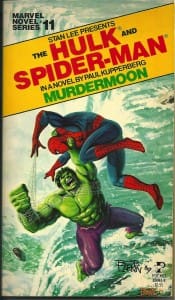 Interviewer: How much rewriting do you do?
Interviewer: How much rewriting do you do?
Hemingway: It depends. I rewrote the ending of Farewell to Arms, the last page of it, thirty-nine times before I was satisfied.
Interviewer: Was there some technical problem there? What was it that had stumped you?
Hemingway: Getting the words right.
—Ernest Hemingway, “The Art of Fiction,” The Paris Review Interview, 1956
When asked, as I sometimes am, for “writing advise,” I usually lead with these trite bits of wisdom:
1. Write!
2. Don’t be afraid to turn out a bad first draft, because
3. Writing is actually a process of rewriting.
The first is self-explanatory. Don’t just think about writing or talk about it. Do it! The only way to learn how to write is by the doing, and the only way to do it is to do it, re-do it, then do it again and again until, as the esteemed Mr. Hemingway said, you get the words right. The first draft is the blueprint. The rewriting is the fine, detail carpentry work, if I may get all This Old House on you.
While it was me who suggested this month’s Crazy 8 blog topic–What work of yours would you go back and rewrite if you could?–I realized when I sat down to write my piece on the subject it was a case of having hoisted myself on my own petard. Because the answer is, honestly, everything. Whether it’s something I had written at the start of my publishing career in 1975 or the story I finished last week, I would, if given the opportunity, rewrite every single damned thing I’ve ever published. Of course that’s not possible, certainly not for the 1000 or so comic book stories I’ve written, or for most of the prose, fiction and non-fiction alike, that I’ve done. Most of it is in print and out of my creative control besides, having been written as “work made for hire,” meaning it’s owned and technically “authored” by the publishers who paid me to do the work in the first place.
“I have rewritten–often several times–every word I have ever published. My pencils outlast their erasers.”
—Vladimir Nabokov, Speak, Memory, Random House, 1966
But re-reading some of my output, is if not painful, at least an effort. I often describe myself as a “retail writer,” a pen for hire. I turn out stories by the word count or the number of pages, usually on a very specific deadline, and get paid accordingly. Sometimes there’s time to rewrite; more often than not, there isn’t. The picture that heads up this post is of the bookcase where I keep what I’ve written. Even taking into account that there’s almost an entire shelf of reprints of other things on the rest of the shelves, and that I didn’t write every story in every comic book or anthology, that still represents a buttload of words. As da Vinci is supposed to have said, “Art is never finished, only abandoned.” If a writer didn’t “abandon,” to whatever degree of satisfaction, any single work, they would never get to the next one.
“I would write a book, or a short story, at least three times–once to understand it, the second time to improve the prose, and a third to compel it to say what it still must say. Somewhere I put it this way: first drafts are for learning what one’s fiction wants him to say. Revision works with that knowledge to enlarge and enhance an idea, to reform it. Revision is one of the exquisite pleasures of writing.”
—Bernard Malamud, “Long Work, Short Life,” quoted in The Magic Worlds of Bernard Malamud, by Evelyn Gross Avery, SUNY Press, 2001
Which isn’t to say I’m embarrassed by these works, whether written forty years or forty days ago. I like to think I did the best I could with what I knew and the skill level I possessed at the time I wrote them. While some of the writing or ideas may make me cringe, there’s always something in it–a sentence here or there, a random chapter, a well-realized character or bit of business–that I can point to that makes it tolerable.
 That being said, if I had to choose one work that I would love to have a second crack at, it would have to the 1980 novel Murdermoon featuring Spider-Man and the Hulk, the eleventh (and final) entry in Pocket Books’ Marvel Novel Series. I had written an earlier novel in the series (Spider-Man in Crime Campaign) which, considering my age and that it was the first novel I’d ever done, was an at least readable 50,000 words of pulp fiction. Murdermoon, on the other hand, doesn’t stand up under any criteria. Remember my second piece of advice above (Don’t be afraid to turn out a bad first draft)? Well, Murdermoon was certainly that…unfortunately, given the project’s tight deadline, it was also the only draft. Nowadays, thanks to computers, rewriting and revisions are easily done on the fly; before I start a day’s writing, I revisit the previous day or two’s output and do my revisions as I go along, then do a last and thorough rewrite/revision on the completed piece after I’ve typed “the end.”
That being said, if I had to choose one work that I would love to have a second crack at, it would have to the 1980 novel Murdermoon featuring Spider-Man and the Hulk, the eleventh (and final) entry in Pocket Books’ Marvel Novel Series. I had written an earlier novel in the series (Spider-Man in Crime Campaign) which, considering my age and that it was the first novel I’d ever done, was an at least readable 50,000 words of pulp fiction. Murdermoon, on the other hand, doesn’t stand up under any criteria. Remember my second piece of advice above (Don’t be afraid to turn out a bad first draft)? Well, Murdermoon was certainly that…unfortunately, given the project’s tight deadline, it was also the only draft. Nowadays, thanks to computers, rewriting and revisions are easily done on the fly; before I start a day’s writing, I revisit the previous day or two’s output and do my revisions as I go along, then do a last and thorough rewrite/revision on the completed piece after I’ve typed “the end.”
But Murdermoon was written in the age of the typewriter and what little rewriting I could do was done in pencil on that first and only draft of the manuscript. There simply wasn’t time to run it through the typewritten a second time and the result shows it. The story meanders, the plot is barely coherent, and the prose even more clunky than was my wont as a twenty-five year old writer. Len Wein, one of the book’s editors along with Marv Wolfman, did single out one chapter, set in a small town where Bruce (the Hulk) Banner wakes up and thinks about perhaps settling, praising it for its Ray Bradbury-ish vibe. To this day, I think Len was being extraordinarily kind.
“I’m all for the scissors. I believe more in the scissors than I do in the pencil.
—Truman Capote in Conversations With Capote, by Lawrence Grobel, New American Library, 1985
Murdermoon is more than half my lifetime in the past and it is and will always be what it is. And the truth is, even if I had a reason to rewrite it, it would still never be all that I want it to be. Someone asked me recently what the hardest part of writing was. I answered that it was making the words sound as good on paper as they did in my head.
I’m currently revising a collection of short stories written since the mid-90s that I plan to bring out through Crazy 8 Press in the near future, my opportunity to rewrite, update, and make better than when they were first published. Of course, every time I look at them, even those I’d already gone over again (and again) I find something else to change and hopefully improve. Pretty soon, I’ll abandon them to publication and move on to the next piece that I’ll eventually be forced to let loose in the world, ready or not.
Like this essay. Another couple of lines and the first draft will be done. Then I’ll put it aside for a bit before returning to it for the second (and third and so on) round until, even though it’s not exactly right because it never can be, I’ll post it and regretfully move on. I know the right words are out there. I just have to keep searching until I find them.






